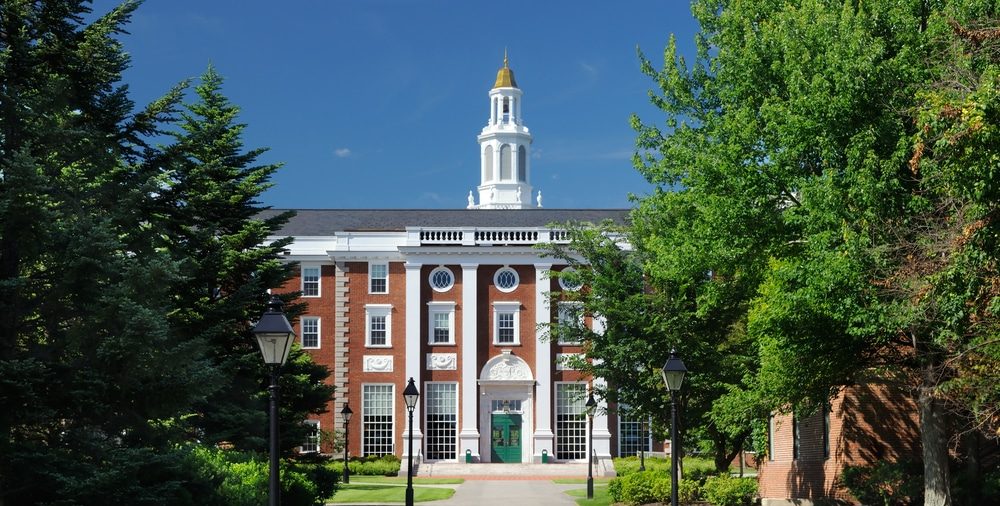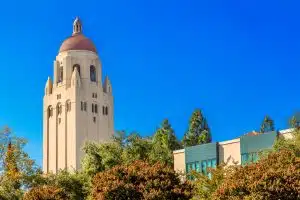Exploring the Meaning Behind the Harvard Motto
When it comes to prominent educational institutions, Harvard University is known worldwide for its rich history and prestigious reputation. One aspect that captures the essence of this esteemed institution is its motto. In this article, we will delve into the meaning behind the Harvard motto, understanding its historical context and Latin roots, as well as exploring its significance, interpretations, and relevance in both modern times and the future.
Understanding the Harvard Motto
At the heart of Harvard University lies its motto, which encapsulates the values and aspirations of the institution. To truly appreciate the motto, it is essential to examine its historical context and Latin roots.
The Historical Context of the Harvard Motto
The motto of Harvard University, “Veritas,” is Latin for “truth.” It has been the motto since the university’s inception in 1636, chosen by the founding fathers to symbolize the pursuit of knowledge and the commitment to truth as the ultimate goal of education. This motto reflects the ideals that have guided Harvard for centuries, fostering a dedication to intellectual exploration and academic integrity.
Harvard’s motto, “Veritas,” holds a profound significance in the historical context of the university. In the early years of Harvard, education was primarily focused on religious studies. However, as the institution evolved, it became a center for intellectual inquiry and the pursuit of knowledge in various disciplines.
The motto, “Veritas,” encapsulates this transformation, representing the university’s commitment to the pursuit of truth in all areas of academic exploration.
Throughout its rich history, Harvard has produced numerous groundbreaking discoveries and advancements in various fields. The motto, “Veritas,” has served as a guiding principle, inspiring generations of students and faculty to seek truth and challenge conventional wisdom. It has fostered an environment where intellectual curiosity is celebrated, and the pursuit of knowledge is valued above all else.
The Latin Roots of the Harvard Motto
The Latin language has long been associated with education and scholarship. With its origins in Ancient Rome, Latin serves as the foundation for many academic disciplines. By adopting a Latin motto, Harvard upholds a tradition steeped in scholarly history.
The choice of “Veritas” as the motto amplifies Harvard’s commitment to the pursuit of knowledge, emphasizing the importance of seeking truth in all academic endeavors.
Latin, the language of the ancient Romans, has played a significant role in the development of Western civilization. It has been the language of scholars, philosophers, and scientists throughout history. By adopting a Latin motto, Harvard pays homage to this rich intellectual tradition and aligns itself with the legacy of great thinkers who have shaped the course of human knowledge.
The Latin roots of the Harvard motto, “Veritas,” reflect the university’s deep connection to classical education. Latin was once the lingua franca of academia, and its use in the motto symbolizes Harvard’s commitment to preserving and promoting the traditions of intellectual rigor and scholarly excellence. It serves as a reminder that the pursuit of truth is a timeless endeavor, transcending cultural and temporal boundaries.
Furthermore, the Latin language itself is a testament to the power of language and communication. By using Latin in its motto, Harvard embraces the universality of knowledge and the importance of effective communication in the pursuit of truth. It highlights the university’s dedication to fostering a global community of scholars who can engage in meaningful dialogue and exchange ideas across cultures and languages.
The Significance of the Harvard Motto
The Harvard motto holds profound importance in shaping the institution’s identity and influencing its culture. Let us explore these aspects in more detail.
The Motto’s Role in Harvard’s Identity
Harvard’s motto, “Veritas,” plays a significant role in defining the institution’s identity. It reinforces the university’s commitment to truth and intellectual honesty, shaping the academic environment and attracting individuals who value rigorous exploration of knowledge. The motto serves as a constant reminder of the values Harvard upholds and the principles it instills in its students.
When students first step foot on Harvard’s historic campus, they are greeted by the motto “Veritas” emblazoned on the university’s official seal. This powerful symbol serves as a visual representation of Harvard’s dedication to the pursuit of truth. It is a reminder that at Harvard, knowledge is not simply acquired, but actively sought after with a relentless pursuit of accuracy and authenticity.
Throughout their time at Harvard, students are encouraged to embody the principles of the motto in their academic pursuits. The motto serves as a guiding light, reminding students to approach their studies with intellectual rigor and integrity. It inspires them to question assumptions, challenge established theories, and seek out new perspectives in their quest for knowledge.
The Motto’s Influence on Harvard’s Culture
Harvard’s motto extends its influence beyond the university’s identity, permeating its culture as well. The pursuit of truth is not limited to the classroom; it extends to all aspects of campus life.
The motto inspires students, faculty, and staff to approach challenges and controversies with intellectual honesty, critical thinking, and a commitment to unbiased inquiry. This focus on truth cultivates a vibrant intellectual community where diverse perspectives are welcomed and sincere dialogue thrives.
Harvard’s commitment to truth is evident in the rich tapestry of academic disciplines and research interests represented on campus. Students from all walks of life come together to engage in intellectual discourse, sharing their unique perspectives and challenging each other’s ideas.
The motto “Veritas” serves as a unifying force, reminding everyone that their pursuit of knowledge is not just for personal gain, but for the betterment of society as a whole.
Beyond the classroom, the motto influences the way Harvard students engage with the world. It instills in them a sense of responsibility to use their knowledge and skills to make a positive impact. Whether it be through community service, activism, or entrepreneurship, Harvard students are driven by a desire to apply their learning to real-world problems and effect meaningful change.
In conclusion, the Harvard motto, “Veritas,” is not just a phrase etched in stone or printed on letterheads. It is a guiding principle that shapes the institution’s identity and influences its culture. It serves as a constant reminder of the values Harvard upholds and the commitment to truth that permeates every aspect of campus life.
The motto inspires students, faculty, and staff to pursue knowledge with intellectual honesty, critical thinking, and a dedication to unbiased inquiry. It fosters a vibrant intellectual community where diverse perspectives are embraced, and the pursuit of truth is valued above all else.
Interpretations of the Harvard Motto
Throughout the years, scholars and students alike have offered various interpretations of the Harvard motto. Let us explore some of these interpretations, highlighting the diverse perspectives surrounding “Veritas.”
Scholarly Interpretations of the Motto
Scholars have analyzed the Harvard motto from different angles, providing insightful interpretations. Some emphasize the motto as a call to intellectual honesty and the rigorous pursuit of knowledge, symbolizing the importance of critical thinking and evidence-based reasoning.
They argue that “Veritas” serves as a constant reminder that the pursuit of truth requires unwavering dedication to seeking out facts, challenging assumptions, and engaging in open-minded discourse.
Furthermore, scholars view “Veritas” as a reminder of the responsibility scholars bear in discovering and disseminating objective truth. They argue that the motto urges them to prioritize accuracy and integrity in their research and teachings.
By upholding the principles of “Veritas,” scholars strive to contribute to the advancement of knowledge and the betterment of society as a whole. They believe that the pursuit of truth is not only an academic endeavor but also a moral obligation.
Student Perspectives on the Motto
Students at Harvard University bring their unique perspectives to the interpretation of the motto. For many, “Veritas” represents a personal commitment to authenticity and self-discovery. It encourages them to question assumptions and preconceptions, fostering intellectual growth and personal development.
Students believe that by embracing the spirit of “Veritas,” they can explore their own identities and values, allowing them to lead more fulfilling and purposeful lives.
In addition to personal growth, some students view the motto as a reminder to engage in ethical decision-making and to contribute positively to society through their actions. They believe that the pursuit of truth should extend beyond the confines of academia and into the realm of social responsibility.
By embodying the principles of “Veritas,” students strive to make a meaningful impact on the world around them, addressing societal challenges and promoting justice and equality.
Moreover, students interpret “Veritas” as a call to embrace diversity and inclusivity. They believe that the pursuit of truth requires engaging with different perspectives and valuing the contributions of individuals from all walks of life. By fostering an inclusive environment, students aim to create a vibrant intellectual community that celebrates the richness of human experience and fosters meaningful connections among individuals with diverse backgrounds and beliefs.
The Harvard Motto in Modern Times
As society evolves and education adapts to new challenges, the relevance of the Harvard motto persists. Let us explore how “Veritas” maintains its significance in today’s society.
The Harvard motto, “Veritas,” meaning truth, continues to hold immense importance in the modern world. In an era marked by misinformation and an excess of information, the pursuit of truth has become more crucial than ever. It serves as a guiding principle, a moral compass that directs individuals in navigating the complexities of today’s society.
In a time when falsehoods can have far-reaching consequences, the Harvard motto serves as a beacon of intellectual integrity. It encourages individuals to engage in critical examination of ideas, to question and challenge prevailing narratives, and to seek evidence-based reasoning. By upholding the value of truth, the motto reminds us of the enduring significance of seeking knowledge and understanding.
The Motto’s Relevance in Today’s Society
The Harvard motto’s relevance in today’s society extends beyond the realm of academia. It has profound implications for various aspects of our lives, including politics, media, and everyday interactions. In an age where misinformation spreads rapidly through social media platforms and news outlets, the pursuit of truth becomes paramount.
The motto encourages individuals to be discerning consumers of information, and to fact-check and critically analyze the sources they encounter. It reminds us that truth is not always easily discernible and that it requires diligent effort to separate fact from fiction. By embracing the motto’s principles, individuals can contribute to a more informed and enlightened society.
The Motto’s Impact on Contemporary Education
Harvard’s motto continues to have a profound impact on contemporary education, inspiring other institutions and educators worldwide. The focus on truth and intellectual rigor permeates teaching practices, shaping the way educators approach their craft.
By embracing the Harvard motto, educators create an environment where students are encouraged to question, explore, and critically analyze information. They foster a culture of intellectual curiosity and empower students to become active participants in their own learning journey.
The motto serves as a reminder that education is not merely about acquiring knowledge, but also about developing the skills to think critically and evaluate information.
Furthermore, the Harvard motto has become a symbol of the enduring values of education itself. It reminds us that the pursuit of truth remains a cornerstone of meaningful education, transcending disciplinary boundaries and fostering a lifelong commitment to learning.
The Future of the Harvard Motto
As Harvard University progresses into the future, questions arise regarding the potential changes in the motto and its role in shaping future generations. Let us consider these aspects.
Potential Changes to the Motto
While the Harvard motto has stood the test of time, some have pondered potential changes to reflect the evolving landscape of education and the world. Although no formal proposals for alteration have emerged, discussions have centered around embracing new interpretations of truth and reflecting the pressing challenges facing society.
Any potential changes, however, will require careful consideration to balance continuity with the values that have defined Harvard for centuries.
The Motto’s Role in Shaping Future Generations
Regardless of any future changes, the Harvard motto will undeniably continue to shape future generations. As the world grapples with an ever-increasing volume of information and complex global issues, the significance of truth-seeking is likely to grow.
The motto will serve as a guiding principle, encouraging future students to embrace intellectual integrity, engage in critical thinking, and contribute to positive transformation in society through the pursuit of knowledge and truth.
In conclusion, the Harvard motto, “Veritas,” holds profound meaning and significance for the institution and its community. Rooted in history and Latin tradition, it symbolizes the relentless pursuit of truth and the commitment to intellectual honesty.
The motto’s influence extends beyond Harvard’s identity, shaping its culture and fostering an environment conducive to academic growth and critical inquiry. In the ever-changing landscape of education and society, the motto continues to hold relevance, reminding us of the enduring value of seeking truth and shaping the future of education for generations to come.
Having all the necessary information is important before choosing any course of action. AdmissionSight is always here to assist you with any questions or concerns. We have more than ten years of expertise assisting students in successfully navigating the challenging admissions process.
Consult with AdmissionSight and find out what we can do to help you get into the school of your choice by ensuring that you are sufficiently aware and well-prepared for the application process.









































